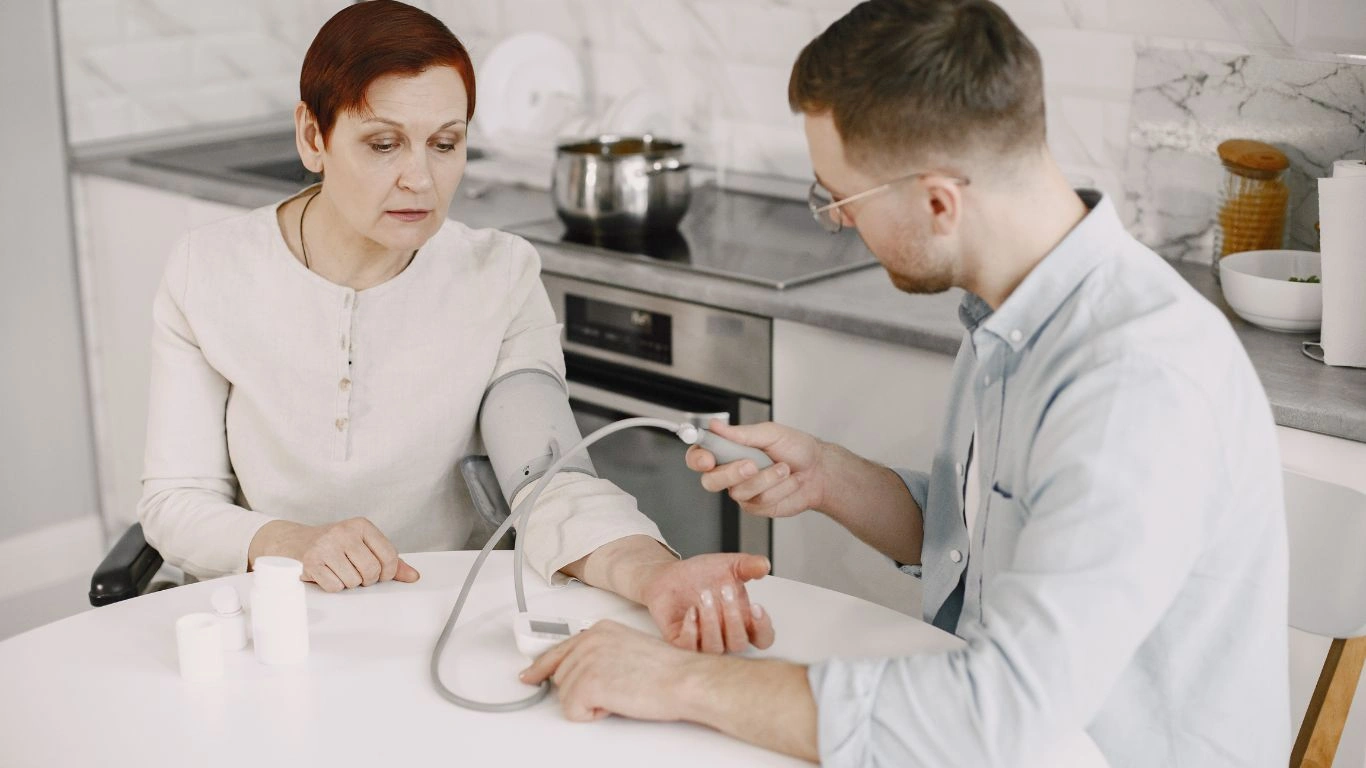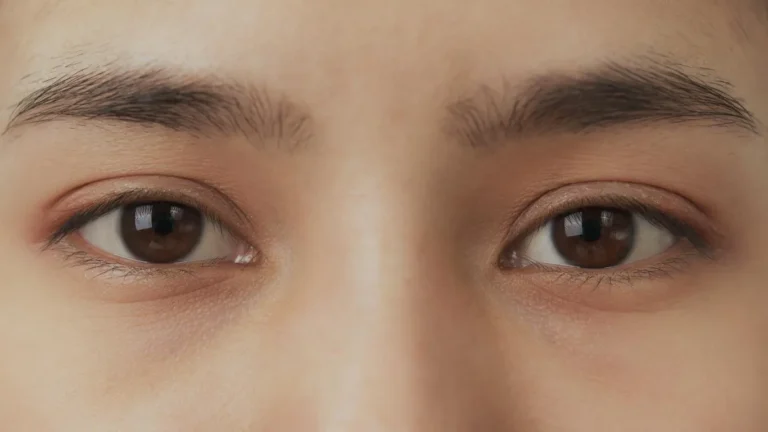Evening Habits to Reduce Blood Pressure – Simple Yet Effective Strategies
Are you looking for ways to manage your blood pressure at night? It’s more than just medication; your evening routine can play a huge role in keeping your blood pressure in check. There’s a lot you can do to help your body wind down, lower stress, and relax, which all contribute to healthier blood pressure levels.
Let’s dive into some simple but effective evening habits that can help reduce your blood pressure and improve your overall health. Whether you’re trying to relax after a busy day or just want to optimize your sleep, these habits can make a big difference.

Why Evening Habits Matter for Blood Pressure
Blood pressure tends to naturally dip in the evening as your body prepares for rest. However, factors like stress, anxiety, and certain lifestyle choices can keep it elevated. That’s where your evening routine comes into play. A relaxing and mindful evening can help your body stay in a calmer state, supporting lower blood pressure and overall heart health.
By focusing on specific habits in the evening, you’re giving your body the best chance to lower its blood pressure before bedtime, which also contributes to a better night’s sleep.
1. Practice Deep Breathing or Meditation
One of the most effective ways to reduce blood pressure in the evening is to practice relaxation techniques like deep breathing or meditation. These activities activate the parasympathetic nervous system, which helps calm the body and lower stress. Here’s how to do it:
Deep Breathing Exercise:
- Sit comfortably, close your eyes, and inhale deeply through your nose for a count of 4.
- Hold your breath for a count of 4.
- Exhale slowly through your mouth for a count of 6.
- Repeat for 5–10 minutes.
This can help slow your heart rate and promote relaxation, setting the tone for a peaceful evening.
Benefits:
Meditation and deep breathing have been shown to lower blood pressure and improve overall heart health by calming your mind and body. Regular practice can even help reduce your overall stress levels during the day.

2. Create a Calming Bedtime Routine
Your evening routine doesn’t just start when you hop into bed—it begins hours before. Setting up a calming atmosphere can signal to your body that it’s time to wind down. Here’s how to create the ideal environment for lowering blood pressure before bed:
- Dim the lights: Low lighting can help promote relaxation and signal to your body that it’s time to rest.
- Turn off electronics: The blue light from phones, tablets, or computers can interfere with your sleep cycle, keeping you alert and stressed.
- Try a warm bath or shower: Warm water can soothe sore muscles and lower tension, helping to reduce blood pressure.
Benefits:
A calming routine reduces stress and prepares your body for a good night’s sleep, which helps maintain healthy blood pressure.
3. Eat a Light, Healthy Dinner
The food you eat in the evening can impact your blood pressure, so it’s essential to make healthy choices. A heavy, fatty meal or a lot of sodium close to bedtime can make your body work harder to digest and increase blood pressure.
What to Eat:
- Foods rich in potassium, like bananas, spinach, and sweet potatoes, can help lower blood pressure.
- Lean proteins like fish or chicken are easy on the digestive system and won’t raise your blood pressure.
- Avoid too much salt! High-sodium foods, especially processed ones, can elevate your blood pressure.
Benefits:
A light, nutritious meal helps your body function better at night and reduces the risk of elevating your blood pressure.
4. Limit Caffeine and Alcohol Intake
Caffeine and alcohol are known to raise blood pressure, especially if consumed too close to bedtime. Caffeine is a stimulant, which means it can keep you awake and increase your heart rate, while alcohol might cause a temporary dip in blood pressure, followed by a rebound increase.
What to Do:
- Limit caffeine after 2-3 PM to ensure it doesn’t interfere with your sleep.
- Keep alcohol to a minimum, and if you do drink, aim to have it at least 3 hours before bedtime.
Benefits:
Avoiding these substances can help you relax and achieve a deeper, more restorative sleep, which in turn benefits your blood pressure.
5. Get Comfortable and Restorative Sleep
Getting enough sleep is one of the most important ways to keep your blood pressure low. Poor sleep quality is linked to higher blood pressure levels, so prioritizing sleep is key to long-term blood pressure control.
Tips for Better Sleep:
- Stick to a regular sleep schedule, even on weekends.
- Create a relaxing environment: a comfortable mattress, dark, quiet room, and cool temperature can make all the difference.
- Consider using sleep aids like earplugs or an eye mask if noise or light is an issue.
Benefits:
Good sleep is a natural way to keep blood pressure under control, as your body has a chance to repair itself and lower stress hormones during the night.

6. Limit Screen Time Before Bed
It’s easy to get sucked into watching TV or scrolling through your phone before bed, but this habit can actually raise blood pressure. The blue light from screens messes with your body’s natural circadian rhythm, making it harder to fall asleep and increasing your stress levels.
What to Do:
- Try avoiding screens at least 30-60 minutes before bed. Instead, read a book, listen to calming music, or engage in light stretching.
Benefits:
Avoiding screens can help your body naturally prepare for sleep, lowering your heart rate and blood pressure.
Conclusion
By incorporating these simple evening habits into your routine, you can actively reduce your blood pressure and improve your overall well-being. Whether it’s through deep breathing, a relaxing bedtime routine, or eating better, small changes can make a big difference. Remember, consistency is key—by making these habits part of your nightly routine, you’ll set yourself up for better health and a more relaxed mind.

Appendices
FAQs
Here are some frequently asked questions about evening habits and blood pressure:
- How quickly can evening habits lower blood pressure? While changes may not be immediate, consistently practicing relaxing evening habits can lead to noticeable reductions in blood pressure over time.
- Can I lower my blood pressure just by improving my sleep? Yes, improving sleep quality is one of the most effective ways to naturally lower blood pressure.
- Are there specific foods I should avoid in the evening? Yes, you should avoid high-sodium, heavy, and processed foods that can elevate blood pressure. Instead, opt for lighter, potassium-rich meals.
- How long should I meditate or practice deep breathing for the best results? Aim for 5-10 minutes of deep breathing or meditation each evening for the best results.
- Is it okay to have a small glass of wine before bed? It’s okay in moderation, but keep it light and ensure it’s at least 3 hours before bed to avoid interfering with sleep.
References
For more information on blood pressure management and evening habits, check out these resources:
- National Institutes of Health (2023). “Managing Hypertension Through Lifestyle Changes.” Read Article
- Smith, A., & Johnson, M. (2022). “The Impact of Sleep on Blood Pressure.” Journal of Cardiology, 45(3), 125-132. Read Article
Disclaimer
The information in this article is for educational purposes only and should not be considered as medical advice. Always consult a healthcare professional for personalized guidance on blood pressure management. Individual results may vary, and medical supervision is recommended when making lifestyle changes.

Dr. Gwenna Aazee is a board-certified Internal Medicine Physician with a special focus on hypertension management, chronic disease prevention, and patient education. With years of experience in both clinical practice and medical writing, she’s passionate about turning evidence-based medicine into accessible, actionable advice. Through her work at Healthusias.com, Dr. Aazee empowers readers to take charge of their health with confidence and clarity. Off the clock, she enjoys deep dives into nutrition research, long walks with her rescue pup, and simplifying medical jargon one article at a time.







